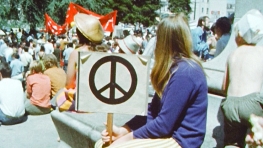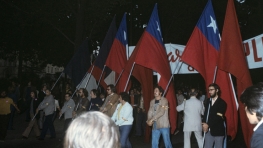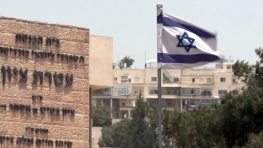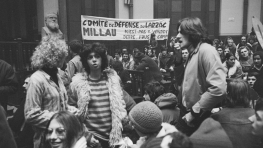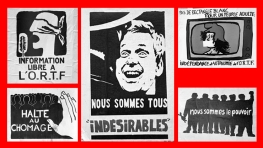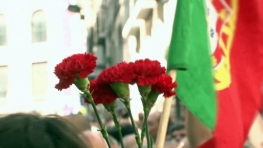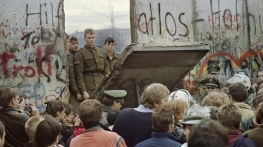- Page
- / 2
The Carnation Revolution in Portugal (April 1974) earned its name when a flower seller on Rossio square offered red carnations to the soldiers entering the city. A military coup was staged by a handful of young officers fighting in the colonial war. The Revolution continued for over two years before a national assembly and a president were elected.
See Theme-based collectionA collection on the 1970s, the years that followed and were markedly influenced by May 68 in France, whether in education, politics or more generally, the atmosphere that reigned throughout the country and the counter-culture.
See Theme-based collectionIn December 1989, the Romanian people rose up and overturned the "conducator", Nicolae Ceaucescu, after years of his dictatorial regime. The Revolution was given widespread media coverage, and documents have lead observers to believe it was started by a coup d'état. A selection of television archives.
See Theme-based collectionAn overview of the political and geographical division of Berlin, from the Yalta Conference in 1945 to the reunification of the two Germanies in 1990. The collection includes substantial coverage of the construction of the wall of shame, which remained the symbol of an implacable totalitarian regime for 28 years.
See Theme-based collectionOn December 10, 1948, 50 Member Countries of the United Nations General Assembly adopted the Universal Declaration of Human Rights. This international charter, drafted just after the Second World War, aims to guarantee the rights of all individuals everywhere and at all times.
See Theme-based collection Theme
Theme 